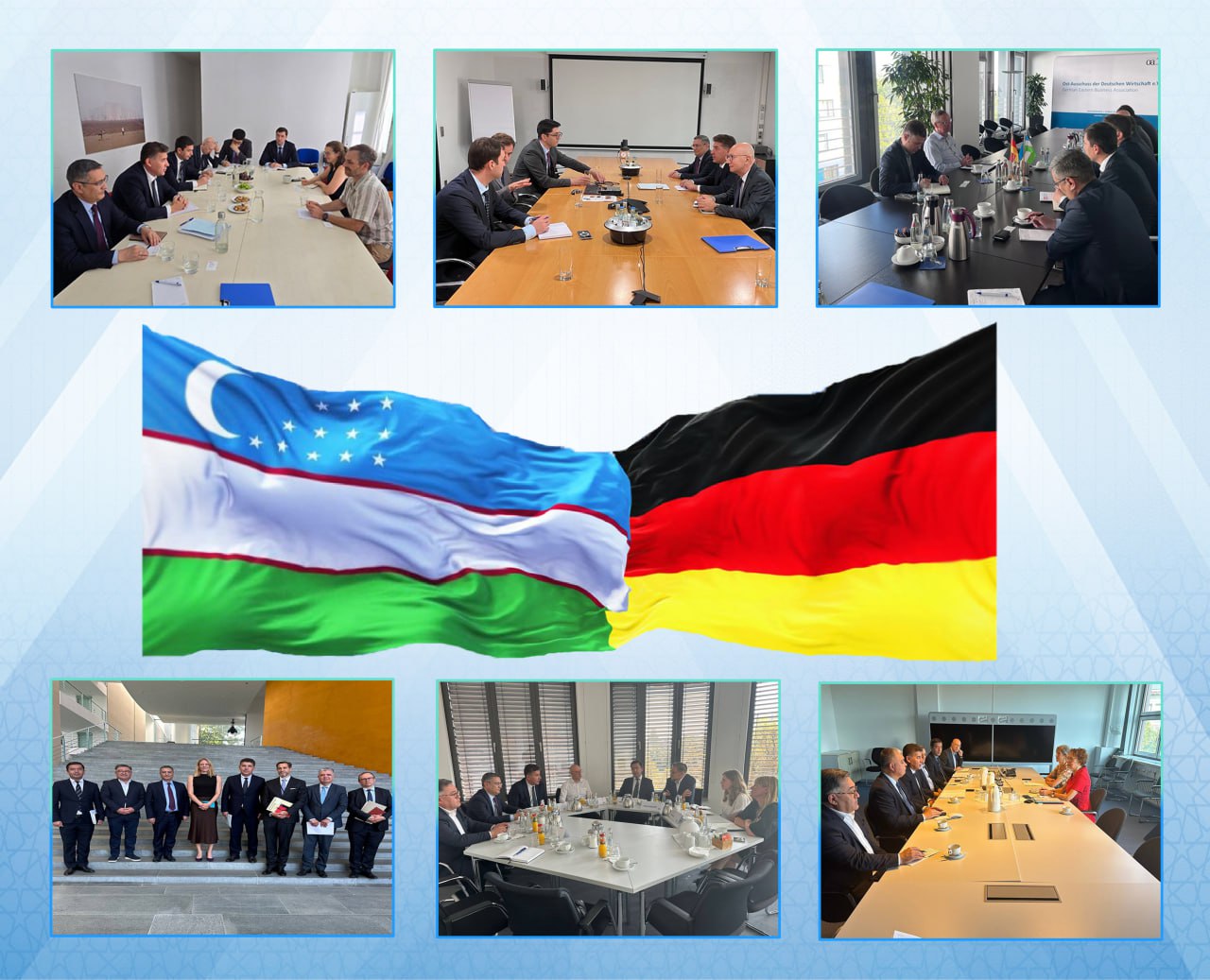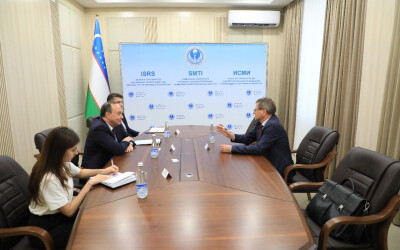Delegation of analytical centers of Uzbekistan visited Germany

From September 2 to 4 this year, a delegation from Uzbekistan, which included the heads and leading analysts of ISRS, IMRS, IACIR, IICA and the Bureau of German-Uzbek Business Cooperation, visited Berlin.
A series of expert meetings and consultations were held in the capital of Germany with representatives of the offices of the Federal President and Federal Chancellor, the Ministries of Foreign Affairs, Environment, Economic Cooperation and Development, the Eastern Committee of German Economy, the Konrad Adenauer and Friedrich Ebert political foundations, as well as think tanks – the German Institute for International and Security Affairs, the Center for East European and International Studies, the Global Public Policy Institute and other institutions.
A thorough exchange of views took place on the issues of comprehensive development of Uzbek-German practical cooperation, as well as multilateral interaction in the Central Asia-Germany format.
According to the parties, relations between Uzbekistan and Germany have reached a qualitatively new, higher level of mutual understanding and trust in recent years. The intensity of contacts at the highest level and the dynamic promotion of the agreements reached have ensured a progressive and meaningful expansion of the bilateral agenda, which is gradually acquiring a strategic nature.
A trusting dialogue has been established at the level of senior management and governments of the countries. In particular, over the past 5 years, 4 bilateral visits of the presidents of the two countries have taken place.
The Business Council, headed by the Prime Minister of Uzbekistan, is actively working. Trade between the countries has grown by 36%, while exports from Uzbekistan have grown by 62%.
Germany is becoming an important investor in the Uzbek economy. The volume of German investments has reached 5.5 billion dollars, of which almost 4 billion have been attracted over the past few years. In particular, from 2016 to 2024, German funds were directed to developing the potential of the basic sectors of the Uzbek economy - energy, mining, chemical industry, production of building materials, pharmaceuticals, agriculture, transport. With the participation of German companies, over 60 projects are being implemented in Uzbekistan for a total of 5 billion euros.
Today, over 220 German companies have entered and are successfully operating in the Uzbek market, including KNAUF, Falk Porsche Fiberglass, Falk Porsche Technik GmbH, Papenburg Uzbekistan, SIEMENS Energy, MAN, CLAAS, GP Papenburg, Viessmann, Deutsche Kabel, LEMKEN and others.
Cooperation also provides support for the implementation of the course of irreversible reforms in Uzbekistan, promotes the introduction of best practices in various areas of state and public construction.
In addition, the experts comprehensively analyzed the process of regional cooperation in Central Asia and the current challenges facing the countries. German experts highly appreciated the efforts undertaken by the President of Uzbekistan and other Central Asian leaders to build good-neighborly and friendly relations aimed at ensuring stable and sustainable development of the region. The result of such a policy was the transformation of Central Asia into an attractive growing market, a center of attraction for investment and political and economic activity.
The course initiated by Uzbekistan to bring the region closer together finds broad support in the socio-political circles of Germany. At the meetings, it was noted that Central Asia demonstrates a responsible and consistent approach against the backdrop of ambiguous global trends.
Separately, the German side was informed about the preparations for the upcoming parliamentary elections in Uzbekistan, which will be held under a new mixed system aimed at strengthening the role of parties and parliament in the socio-political life of the country, the development and implementation of the domestic and foreign policy agenda.
Considering the progress achieved in relations to date, experts paid special attention to developing new ideas, recommendations and proposals for further joint projects in the political-diplomatic, trade-economic and cultural-humanitarian areas.
Opportunities in the areas of "green" development, renewable energy, transport and logistics, industrial cooperation, technology transfer and support for innovation, healthcare and education, and the development of human capital were considered.
Following the visit, prospects for expanding scientific cooperation and conducting joint research were outlined. A schedule of important events on current international and regional topics was agreed upon.
Next

On September 6 this year, a meeting was held at ISRS between the Institute director Eldor Aripov and the newly appointed Ambassador Extraordinary and Plenipotentiary of the Federal Republic of Germany to Uzbekistan Manfred Huterer.
06.09.2024





